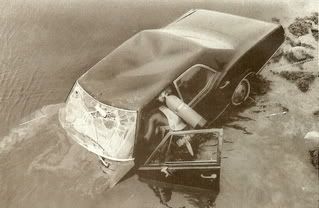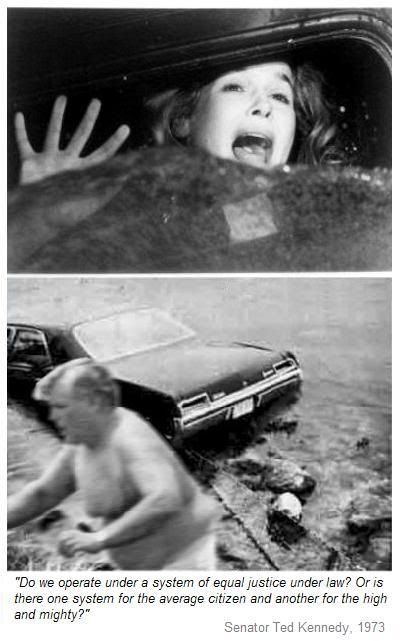
HYPOCRISY AT IT'S FINEST!!!!
The'Hero of Chappaquiddick'
Speaks on why he supports amnesty for those illegal aliens sneaking across the Rio Grande . This just may be the quote of the century!!!
The day they examined Mary Jo Kopechne's death
 On this day in 1970, a four-day inquest into the circumstances leading to the death of Mary Jo Kopechne on Chappaquiddick began at Edgartown Superior Court on Martha's Vineyard.
On this day in 1970, a four-day inquest into the circumstances leading to the death of Mary Jo Kopechne on Chappaquiddick began at Edgartown Superior Court on Martha's Vineyard.
Kopechne, 28, left a party late on the evening of July 18, 1969 with Senator Edward Kennedy, whose late brother, Robert F. Kennedy, she'd worked for during RFK's presidential campaign a year earlier.
According to what Kennedy later told police, he took a wrong turn and drove off a narrow wooden bridge without guardrails. Kennedy somehow managed to escape from the car but Kopechne did not, according to Kennedy, who told police he tried in vain to rescue his passenger. The accident was not reported to police until the next morning when passersby noticed the car in Poucha Pond.

A week later, Kennedy pleaded guilty to leaving the scene of an accident and was given two-month suspended sentence and a year's probation by Edgartown District Court Judge James A. Boyle. The possible legal consequences of the case for Kennedy did not end there, however. On July 31, District Attorney Edmund Dinis ordered an inquest to investigate Kopechne's death.
When the inquest convened six months later, the press and public were barred from attending, as requested by Kennedy's lawyers and upheld by a ruling from the Massachusetts Supreme Judicial Court.
After Kennedy and 26 other witnesses testified at the closed-door inquest, Judge Boyle issued a report that "Kennedy and Kopechne did not intend to return to Edgartown at that time; that Kennedy did not intend to drive to the ferry slip and his turn onto Dike Road was intentional." Boyle also concluded "there is probable cause to believe that Edward M. Kennedy operated his motor vehicle negligently ... and that such operation appears to have contributed to the death of Mary Jo Kopechne," but he does not recommend criminal prosecution against Kennedy.

It was not until the spring of 1970, however, that it became clear Kennedy would avoid prosecution. In late March, the Edgartown grand jury foreman requested the grand jury convene to investigate Kopechne's death and Superior Court Judge Joseph Tauro ordered a special session of the court on April 6 in Edgartown for the grand jury to hear evidence. On April 6 and 7, the grand jury called four witnesses but decided against returning any indictments.
While Kennedy's escape from the legal consequences of his actions was almost as amazing as his improbable extraction from an upended vehicle submerged in the dead of night, he would not be so fortunate in the political realm. The accident almost surely led to Kennedy's decision against running for president in 1972 and 1976 and hung after his disastrous 1980 campaign like a pall.
"The true impact of Chappaquiddick is the line it cleaved between the Kennedys of mythic grandeur and the Kennedys of mortal failings," wrote Sean Flynn for Boston magazine in a July 1999 article titled "The 30 Year War." To a generation of baby boomers and their elders, it marked the end of Camelot, a time of glamour and glory, when handsome soldiers fought for lofty ideals only to be martyred in battle."

No comments:
Post a Comment